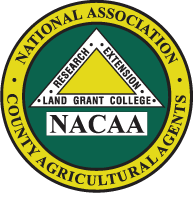INTERNATIONAL ENGAGEMENT TO ENHANCE LOCAL AGRITOURISM
Kelly-Begazo, C.1; Rogers, B.2; Atkinson, M.3; Wells, B.4; Fletcher, E.51Extension Director, Agriculture Agent III, UF IFAS Indian River County Extension, Vero Beach, FL, 32960
2District Extension Director, Agent IV, UF IFAS Extension, Plant City, FL, 33563
3Environmental Horticulture, Agent II, UF IFAS Manatee County Extension, Palmetto, FL, 34221
4Commercial Horticulture, Agent II, UF IFAS Brevard County Extension, Cocoa, FL, 32962
5Commercial Agriculture, Agent I, UF IFAS St. Johns County Extension, St. Augustine, FL, 32092
Abstract:
Agritourism is the blending of agriculture and tourism together, offering visitors a unique educational experience while generating income for the farm. This type of on-farm experiential learning has been on the rise over the last decade as people try to find a stronger connection between what they eat and how it is produced. The success of agritourism for a farm is dependent upon the positive encounter that the visitor has and its lasting impact. Adding agritourism to an agriculture enterprise can be lucrative, but it requires a different business and marketing strategy that most farmers and producers might not have. Extension agents can be a valuable resource if they have the experience and knowledge in agritourism concepts. Gaining this type of proficiency and skill cannot be achieved by investigative study alone but must be supported with real-time experiences.
In October 2019, Extension faculty from different universities, including the University of Florida, embarked on a 10-day agricultural educational travel experience of Ireland. The objective was to enrich extension programs by increasing knowledge of sustainable farming practices and agritourism in Ireland. Attendees visited various types of large and small scale farms (livestock, grain, root crops), that hosted groups of visitors, including an agriculture experiment station. Each site was selected to enhance learning with farmers telling their side of the story; how they are adapting to climate change, fluctuating market structures and influences, political decisions such as Brexit, inter-generational farming and the decision to incorporate agritourism as an additional revenue stream.
The knowledge gained from this experience, along with the personal interactions with Irish farmers and extension professionals from across the United States, have helped agents improve their educational programming with innovative ideas and solutions for local farmers looking to add agritourism to their repertoire. Educational lectures have been given on the Irish agritourism experience to over 150 individuals including local producers and Master Gardener volunteers. A factsheet outlining agritourism tips for farmers has been developed. These international experiences are invaluable to extension agents as they search for solutions to many of the agricultural and environmental challenges that face our farmers today.
